A veritable star of the stage, television, and silver screen, Liev Schreiber has enthralled us with performances delivering subtlety and mystery, offering insight into the complex layers that are part and parcel of being human.
He’s impressed in a multitude of powerful and varied film roles, from playing feral mutant Victor Creed in 2009 Marvel blockbuster ‘X-Men Origins: Wolverine’, to intrepid Boston Globe editor Marty Baron in the 2015 Oscar-winning true story ‘Spotlight’. Coming up, he stars as Nobel Peace Prize winner Henry Kissinger in ‘Golda’, the tale of former Israeli Prime Minister Golda Meir, alongside Helen Mirren in the title role, and also leads the cast in ‘Across the River and Into the Trees’, an adaptation of Ernest Hemingway’s last novel before his death. But he’s perhaps most ingrained on our collective psyche as Ray Donovan, the enigmatic Hollywood fixer capable of great brutality and raw vulnerability all at once, playing the iconic role in seven seasons of the highly successful show and the 2022 movie of the same name.
I have to admit to feeling some unusual trepidation as I prepared to interview Liev, perhaps due to his intimidating performance as Ray, which has echoes of his real-life reputation as a serious operator who does not suffer fools gladly. But despite Liev being in the midst of a nasty bout of bronchitis, any fears were allayed as we had a conversation that was candid, warm, enriching, and one of my favorite interviews since we launched Mr Feelgood more than two years ago.
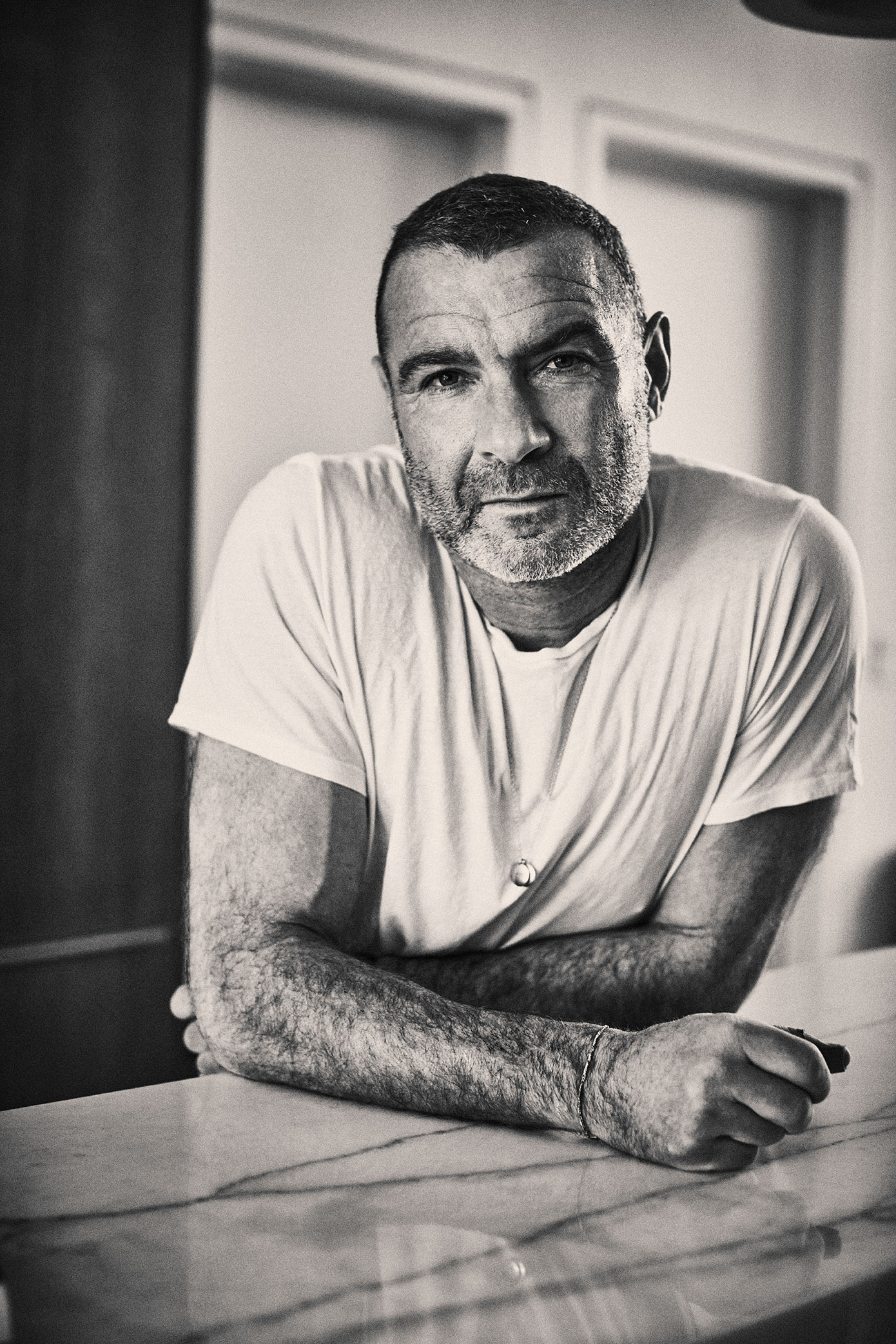
We didn’t focus on Hollywood or his latest screen role, but spoke primarily about the critical and substantial work he’s been doing in Ukraine. Liev — whose maternal grandfather was a Polish-Ukrainian immigrant — is the co-founder of BlueCheck Ukraine, an organization he launched to help ensure the money donated to the country makes it to those who need it most. He is also working closely with President Volodymyr Zelensky as an ambassador for United24, an initiative launched by the president for collecting charitable donations to help the Ukrainian cause.
Alongside the positive impact of his work in the war-ravaged country, Liev’s mission also has honorable personal goals at home. He wants to set a good example to his two teenage children by making his contribution to the war effort of his ancestors’ homeland, seeking to understand the sacrifices made by those fighting to protect Ukraine’s sovereignty, and instilling in his children the values of democracy we oftentimes take for granted.
Having seen the extremes of war first-hand in three visits to Ukraine since Vladimir Putin launched the Russian invasion a year ago, we discuss Liev’s definition of courage. “Watching these guys get on a bus to go off and fight in a war in which they’re wildly outnumbered and outgunned is extraordinary to me,” he says. “I thought about that kind of courage and it occurred to me that it’s some awareness of what lasts, what matters most… and being willing to fight for it.” And as for defining cowardice, “Violence. One of the most interesting things about ‘Ray Donovan’ was that everybody saw him as such a tough guy, but he was just constantly living in fear of being revealed. I think that’s the thing with violence, it’s always the more scared person that throws the first punch. I think that’s being afraid to sit in the moment and see what happens, being afraid to work it out, being afraid to love, being afraid to reach out, being afraid to look for a solution, being afraid to find common ground, being afraid to change. Personally, I think that’s what we’re seeing coming from Putin.”
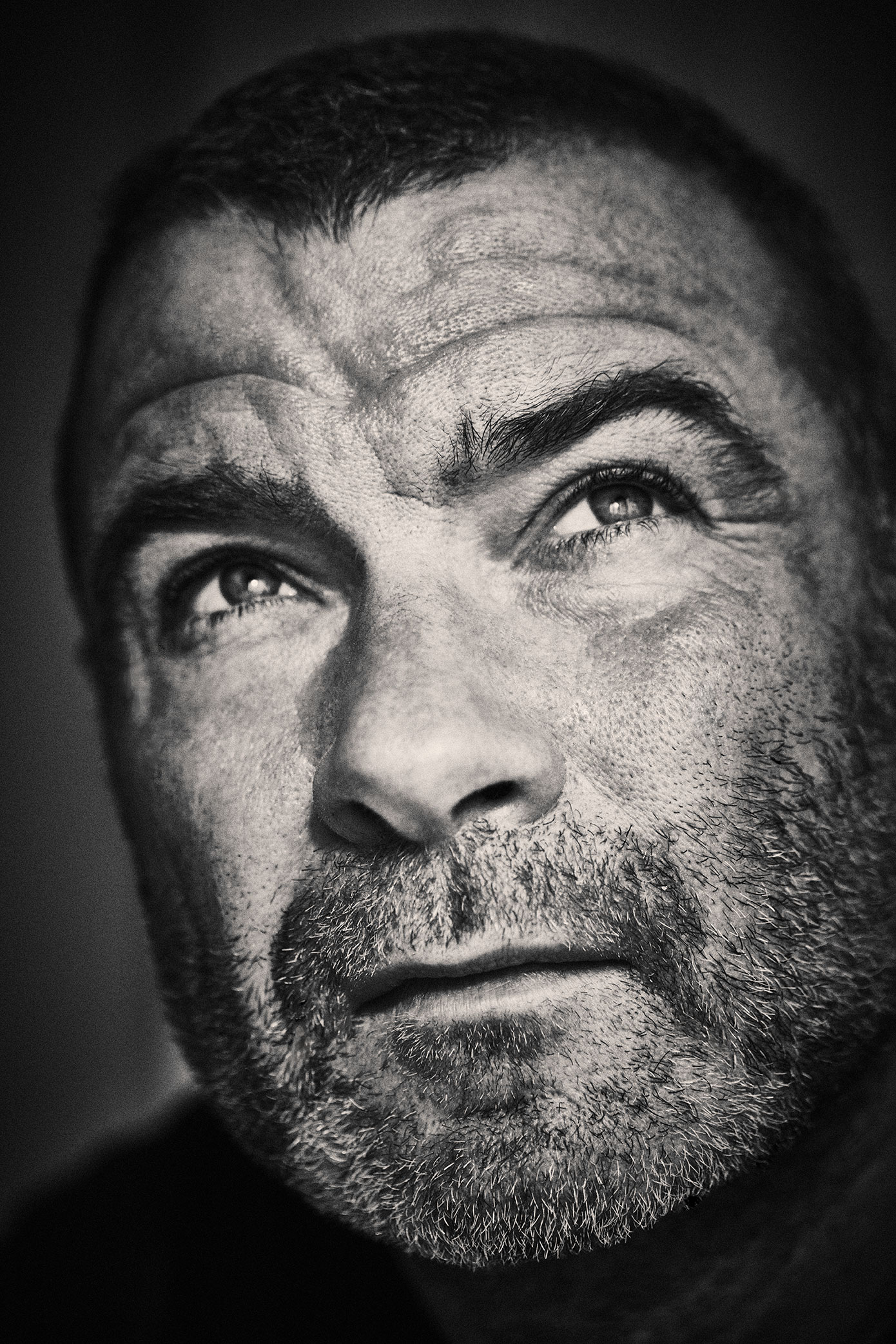
As an actor, writer, and director himself, Liev has an insightful take on Zelensky — a man who was once an actor playing a president, and was then elected to the role for real. He says, “Zelensky made this decision that he was going to be the first leader in Ukraine’s history that wasn’t going to jump on a helicopter and escape into the night. And it occurred to me, because people don’t often say very nice things about actors, that an actor is uniquely suited for that moment because he understands that the second act absolutely has to be [William Shakespeare’s] ‘Henry V’. He knows how that play is going to go. He knows history. He knows dramatic literature. He knows that he has to be a stand-up guy in that moment. I think that’s real courage, standing up for what you believe in. And I think what Zelensky has shown us is that it’s actually easier to do than you might think.”
Liev, 55, also reveals the new purpose provided by helping the Ukrainian cause lifted him out of a personal “bad patch” as he attempted to come to terms with the loss of his father, and his seven years working on ‘Ray Donovan’ coming to an end. Reflecting on his own internal challenges, he shares, “I’ve always struggled with being a social person. I’ve always struggled with keeping in touch. I’ve always struggled with reaching out. And I think one of the best things this work has taught me is how valuable it is. It’s our nature to care about each other. It’s our nature to be compassionate towards each other. And the more I think about it, that is courage.”
We hope you enjoy the full interview in written form here, with portraits by our brilliant photographer Guy Aroch (whose dog, a Maltipoo called Bean, bit Liev on the shoot — but that’s another story!). Check out the video of our conversation below and on our YouTube channel, and the audio as a podcast on Apple and Spotify. It’s the sort of exchange that we always seek to capture and document in our work at Mr Feelgood; a vital discussion on values, what connects us as humans, reaching for our inner strengths, always learning and shifting as we go.
What inspired you to become involved with the war in Ukraine and the efforts that you are making?
It’s really my kids. Sitting on the couch with my kids watching the network coverage, the news cycle, the constant cycle of images of Ukrainians enlisting, saying goodbye to their families and getting on buses to go fight in a war that everyone really believed would be over in three days. Just watching these people risk everything. They don’t really have a choice. It’s sort of an existential issue for them. So it’s watching these people just commit to saying goodbye to their wives and children, and going to fight in a war in which they probably were not going to survive.
And the idea that something like that would happen again in our lifetime, in what we like to think of as a civilized culture, the idea that a ground war like that would happen was really disturbing to me. Particularly as a grandson of Eastern European immigrants who fought that fight more than 80 years ago, and presumably settled it.
In the signing of the Budapest Memorandum, Russia and the United States had all agreed that Ukraine was a sovereign nation and would have its democracy. In fact, Russia pledged to defend it in exchange for Ukraine’s vast arsenal of nuclear weapons. And as soon as Ukraine gave those up, this strategic invasion began. Maidan [the 2013 unrest in the Ukrainian city] was the turning point I guess. That’s when things heated up again and got worse. And obviously that’s when Putin annexed Crimea and it all started and kicked off.
I just remembered my grandfather and his generation of people, the values and the principles that they had, and I realized I had done nothing to demonstrate those to my own children. This was something that I felt was close to home for us, not just as Ukrainians but as Americans. Trends towards authoritarian regimes are increasing all over the world. And the first phase of that seems to be this kind of draw of misinformation and disinformation. It’s happening in America as well. Politics has become a team sport. And as higher education sort of plummets in this country, people aren’t really aware of the freedoms and the liberties that they take for granted. And I don’t think that issue is any clearer than in Ukraine.
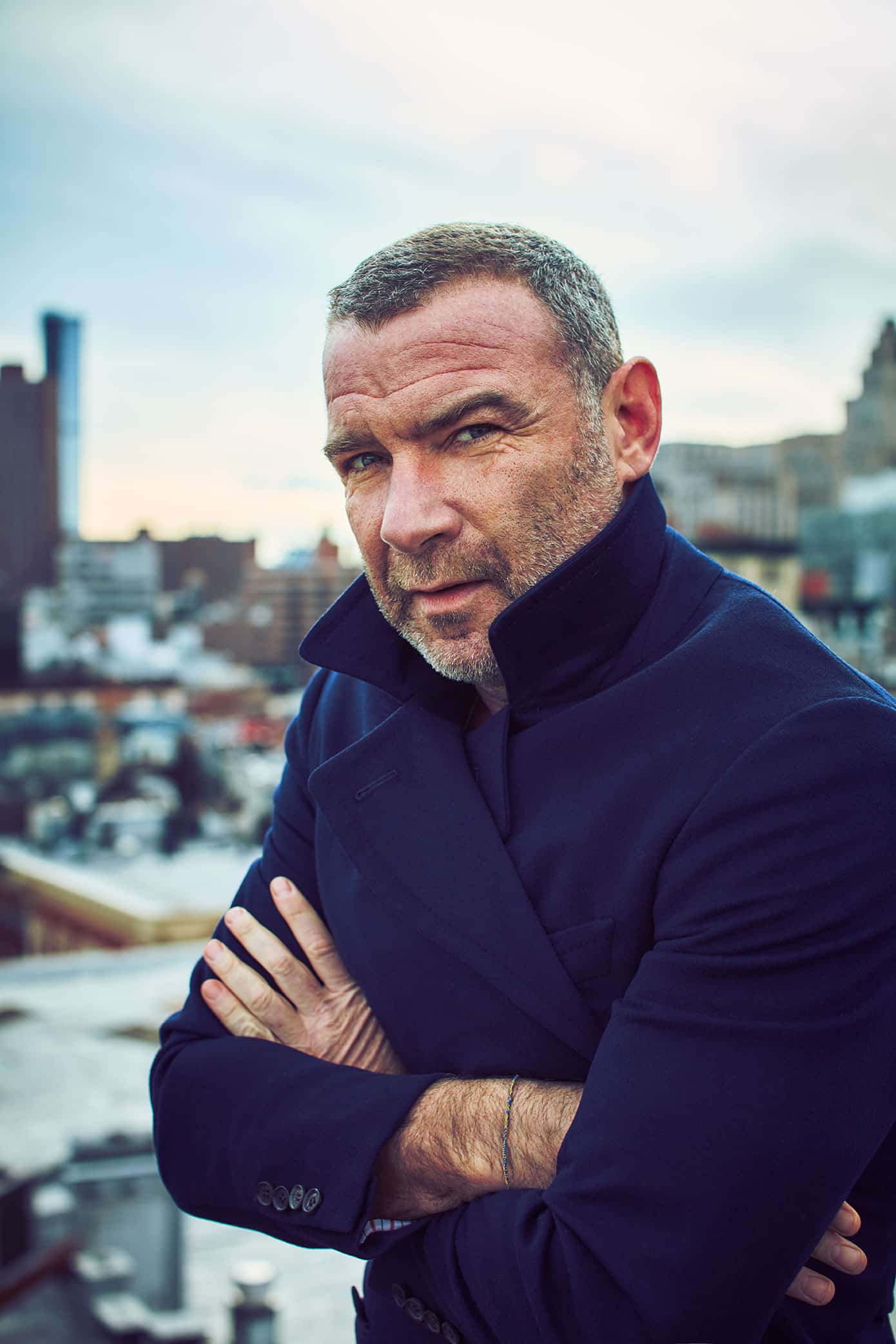
Yeah, exactly. Democracy is being threatened globally at the moment. How many times have you visited Kyiv, Ukraine?
Total, five. Since the war, three.
And can you explain a little bit about the two charities, United24 and BlueCheck, that you’re involved with?
Well, BlueCheck is essentially a pass through for people who want to support Ukraine. We want to make it easy for them. We have a wonderful international law firm called Ropes and Gray who vets and verifies all of the NGOs that we work with. Humanitarian Outcomes, which is a group out of the UK which is kind of a watchdog for humanitarian aid, published a report in June that said $2.6 billion had been donated to Ukraine, and of that $2.6 billion, only around $6 million had actually made it to the active NGOs on the ground who were doing the work. So our model was to try to get into Ukraine, find out who those NGOs were, and create a pass through for people who wanted to support them, and also try to raise money to support them.
That worked out really well. I’m working with some really effective people. The guys on our team have over 30 years experience in humanitarian aid with Doctors Without Borders; Jason Cone, Michael Goldfarb, and Murphy Poindexter. And they had a lot of connections in the embassies. Ultimately, we developed a relationship with the health ministry and President Zelensky, who was also a little upset about that report, so tried to start a fund of his own and reached out to us to help him with that. And that’s how I became involved in United24, which is the president’s fund.
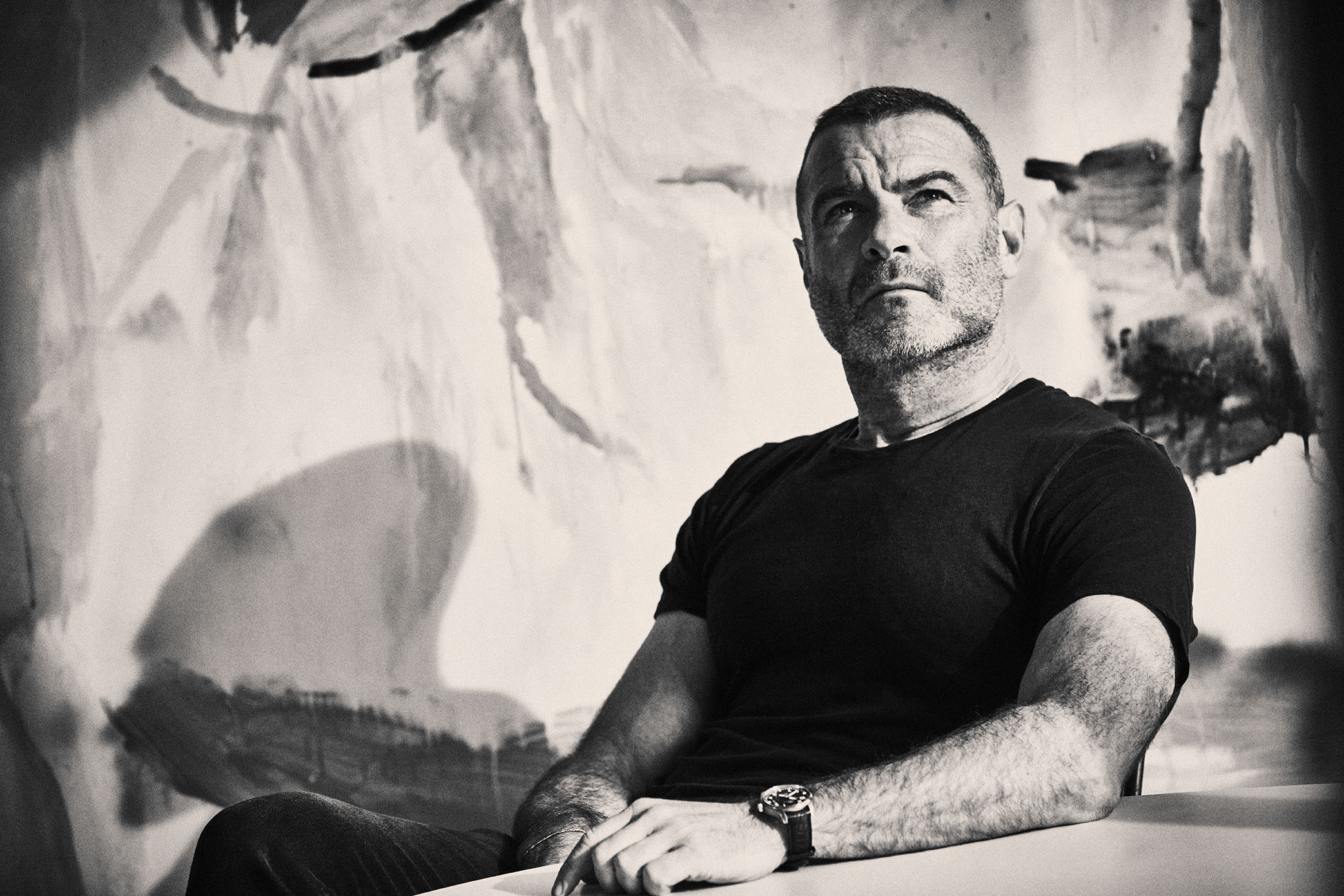
When you were over there, what did you see, who did you meet, and how did it affect you?
The first time I was only in Lviv. What I saw, or what I should say I noticed, was how much people were partying. There’s this plaza in Lviv where I was just surprised, given what was going on in the country, how ebullient everybody seemed. There was a real spirit. They were rallying. I was seeing these really drunk college kids singing these old Ukrainian folk songs, and that was just really touching to me, how in touch with their own culture they had become — or maybe were already, I don’t know enough about Ukrainian culture to know if that already existed, but certainly the Russian invasion had caused this spike in Ukrainian self-love that was super-impressive, and I think has fueled their defiance, their resilience, and their courage.
That first trip was really just about meeting these NGOs. So meeting people like Iolanta Pryshlyak, who’s the director of the Lviv Symphony Orchestra. Obviously the symphony wasn’t playing anymore because of the war and the pandemic. But these top-level classical musicians decided that since they didn’t have concerts they should do something else with their time. So they pulled all the seats out of their theater and they turned their orchestra into a distribution hub. So you have these 70 people who are getting food, medical aid, everything, and they’ve just set up these vans for the distribution. So they practice [their instruments] at night, and during the day they’re a distribution hub for humanitarian aid.
I also met people like Ukraine Needs You, who started a 24/7 mental health hotline for people who are suffering, getting professional therapists and psychologists to be on call for people who wanted to talk. A group that looks after homebound elderly people, a group that provides people with prescription medication. People forget during a war you still need things like insulin to sustain life in the population. The Women’s Center, which was a group that had previously worked in lobbying for gender equality and things like that — because all of these women’s husbands [went to war] there were suddenly all these single mothers. It became this incredible shelter system. Groups like Cash for Refugees who were just dealing with the very acute refugee problem at that time, and finding ways to just give people money and help them get to shelter and safety. Seeing how quickly they responded, and how effectively, was really impressive. I think that first trip to Lviv was really just about being impressed with Ukrainians generally.
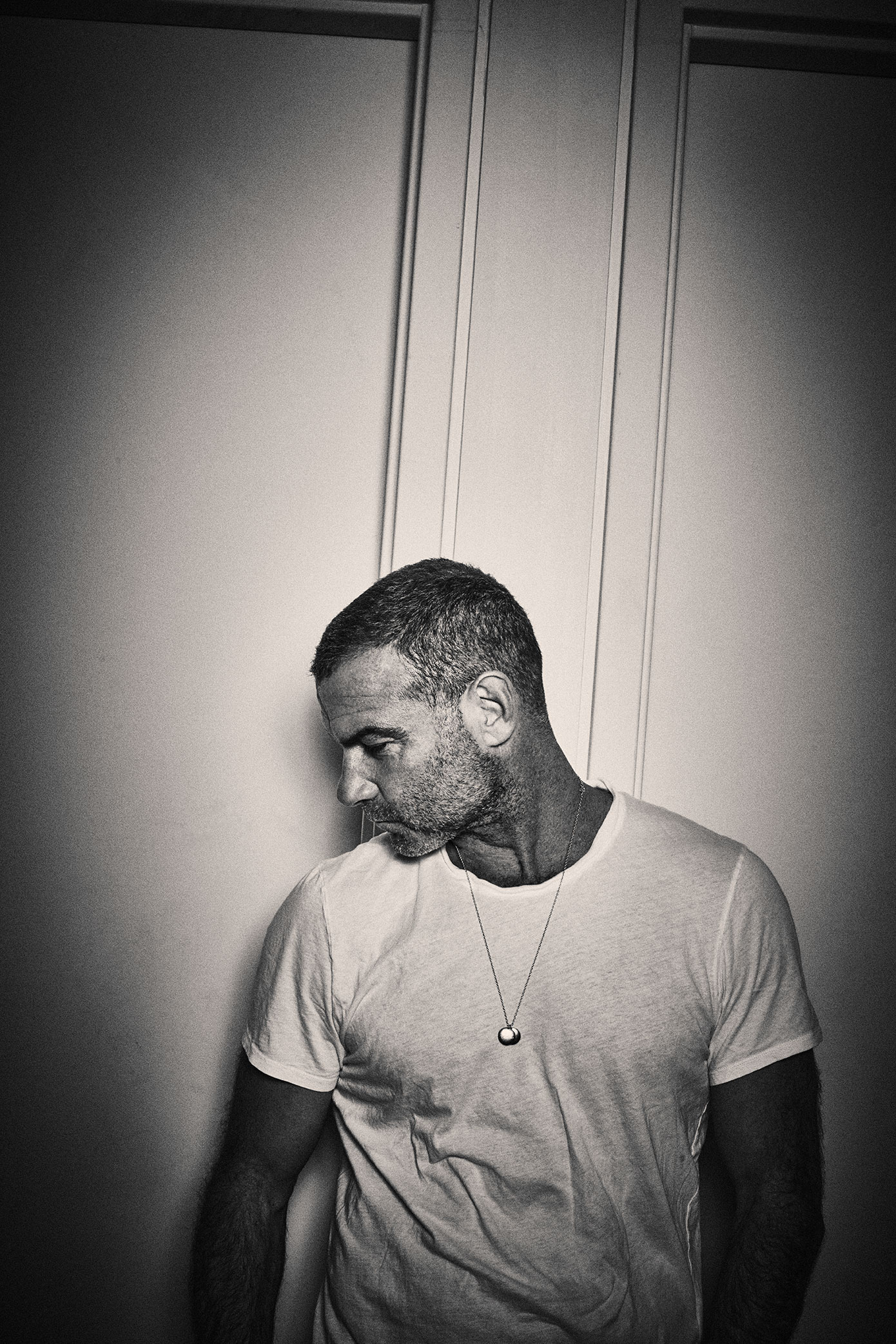
The second trip was to Kyiv, and that was to meet the president, and to visit Borodyanka and some of these more war-torn areas and to see firsthand what they were going through. The exciting part of that obviously was that I got to meet Zelensky, who’s an inspiration to me, someone that I deeply admire, and someone I really enjoyed spending a few hours with. But the darker part of that trip was of course we traveled to Borodyanka in Bucha, and we saw firsthand what had happened there.
In typical American fashion right now, there is this conspiracy theory that the war is not really happening. Well, I was there and I saw it is absolutely happening, and it is a horror show, particularly in those areas. But, again, it was also really inspiring meeting so many people who are doing such effective work. [Businessman] Andrey Stavnitser and [health and philanthropy expert] Olga Rudneva are starting working on a hospital called Superhumans, which is using an international collection of doctors that will give first-class care to Ukrainian victims of the war. It also destigmatizes people who have suffered from the war or lost limbs. It specializes in prosthetic medicine because that’s a really big deal right now. So I was meeting them, meeting the first lady, and just getting the word out.
I can’t remember the term I heard for it, but people are getting tired of it, which is hard to imagine but true. It’s like people tire of bad news. So you find different ways to tell the story or to remind them of what those other people are going through.
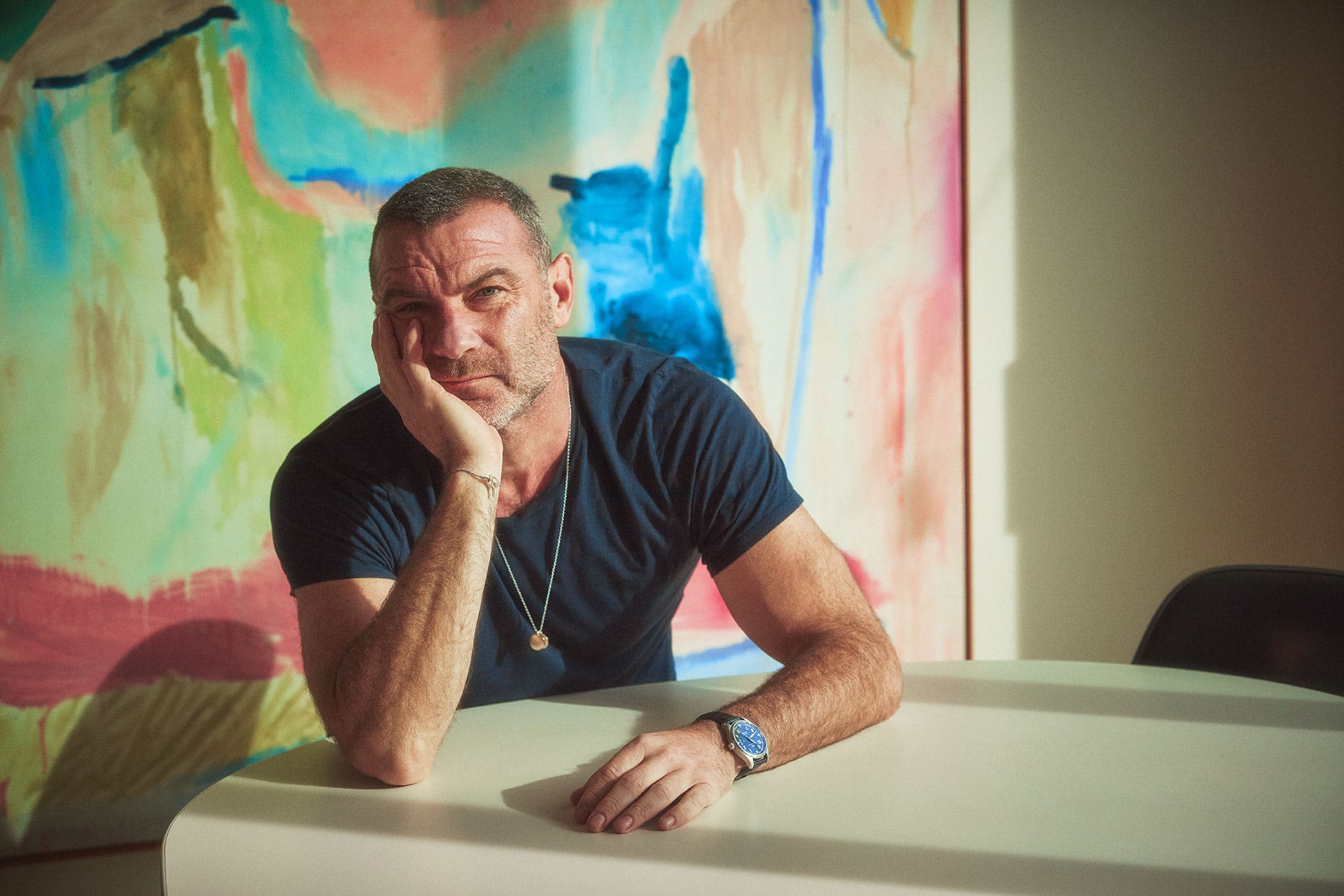
Were there times when you’re out at these various locations, which you’ve expressed were deeply affected by the bombing, where you actually felt scared? I mean, you’re with the number one target, aren’t you, if you’re with the president?
No, I wasn’t. There was one point when we took the train from Poland to Kyiv, and we had to stop on the train and turn out all the lights. And that made me a little nervous. It occurred to me that a train is a kind of easy target, and I didn’t like the idea of being stuck inside something that wasn’t moving. That was probably the worst of it.
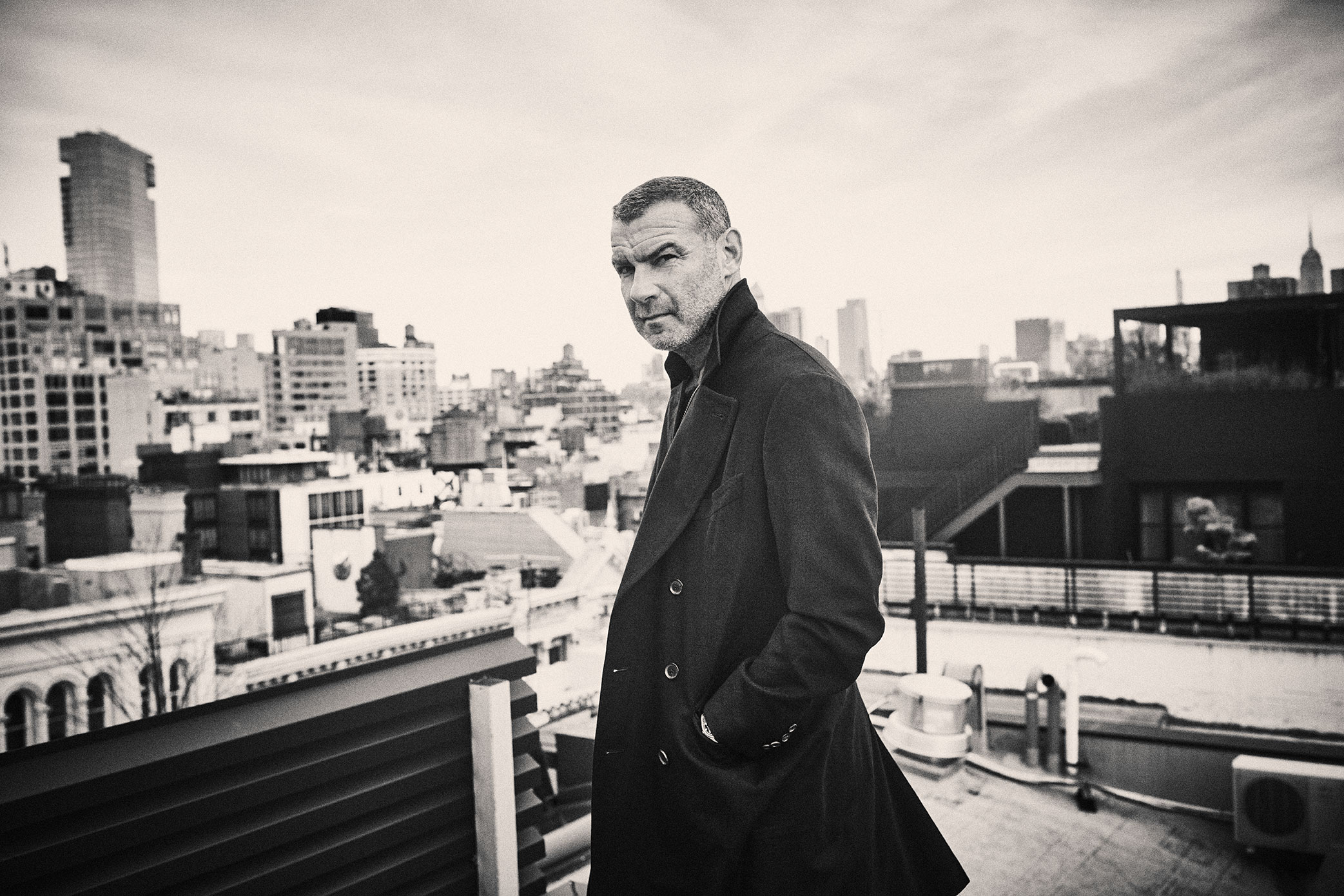
How has it changed you or informed your perspective on life, or as a father? How has it altered you?
Well, I was going through a bad patch, when this all went down, personally as well. I’d been doing ‘Ray Donovan’ for seven years and that ended. When you do something for that long, you don’t really anticipate not doing it, and then you’re not doing it and you’re like, “Well who am I now? And what is my job?” For so long that was my job, and that was my family, and I missed them very much. Also, my father passed away that year in a surprising way. And I think I was just a little bit spun.
And then the war, which was a huge shock to me, was like a gut punch. It felt like, “How is this happening on top of the circus of our politics in America?” Now this was happening, and something felt really chaotic and hard to relate to about the world. I think my first instinct was to kind of fold in on myself a little bit, and become depressed and hide. And I think [I would have] if it were not for my kids and my girlfriend, and having other people around me poking at me going, “Get off the couch, stop moping.” Or there’s that thing that always functions in me: At some point I become self-conscious and aware that I’m not alone. I think I spend most of my life thinking I’m alone, and then somebody reminds me that I’m not. In this case it was my kids, and I realized, “Whoa, shit. They need help. They need to know how to process this.” They heard that we’re Ukrainian. So what does that mean? And it occurred to me that it’s because I’m American that this is important. Because of the democracy, the freedoms, and the liberties.
I always think of this country as a nation of grandchildren. We’ve had a few administrations recently which were down on immigration, but immigration is what this country’s about. It’s how it formed. It’s who we are. The greatest part of our system is that if you’re down on your luck anywhere in the world, you’ve got a shot here. Anybody’s got a shot here. And that’s one of the best things about Americans. But we forget our best qualities. I wouldn’t f**king be here talking to you right now if some guy hadn’t gone out on a cart selling zippers and buttons on Orchard Street so I could go to school and have the shot that I have. We’ve got to respect that system and we’ve got to protect that system. And it feels like we owe a little bit of a debt to our grandparents who fought for the freedoms and the liberties that we’re enjoying now, and that a lot of us take for granted. Imagine if Ukraine, which I consider to be a gate to Western Europe, is occupied with this authoritarian regime. How that’s going to change the world picture. Those kinds of administrations seem to be popping up all over Europe and America.
I think that those of us who value the systems that we live in; that allow us to make art, that allow us to raise our children, that allow us to educate ourselves, allow us to speak the language, allow us to choose who we have relationships with, allow us to choose where we worship. Those of us who care about that stuff, I really think really need to consider how much we care about it. And then whether or not we’re willing to protect it, defend it.
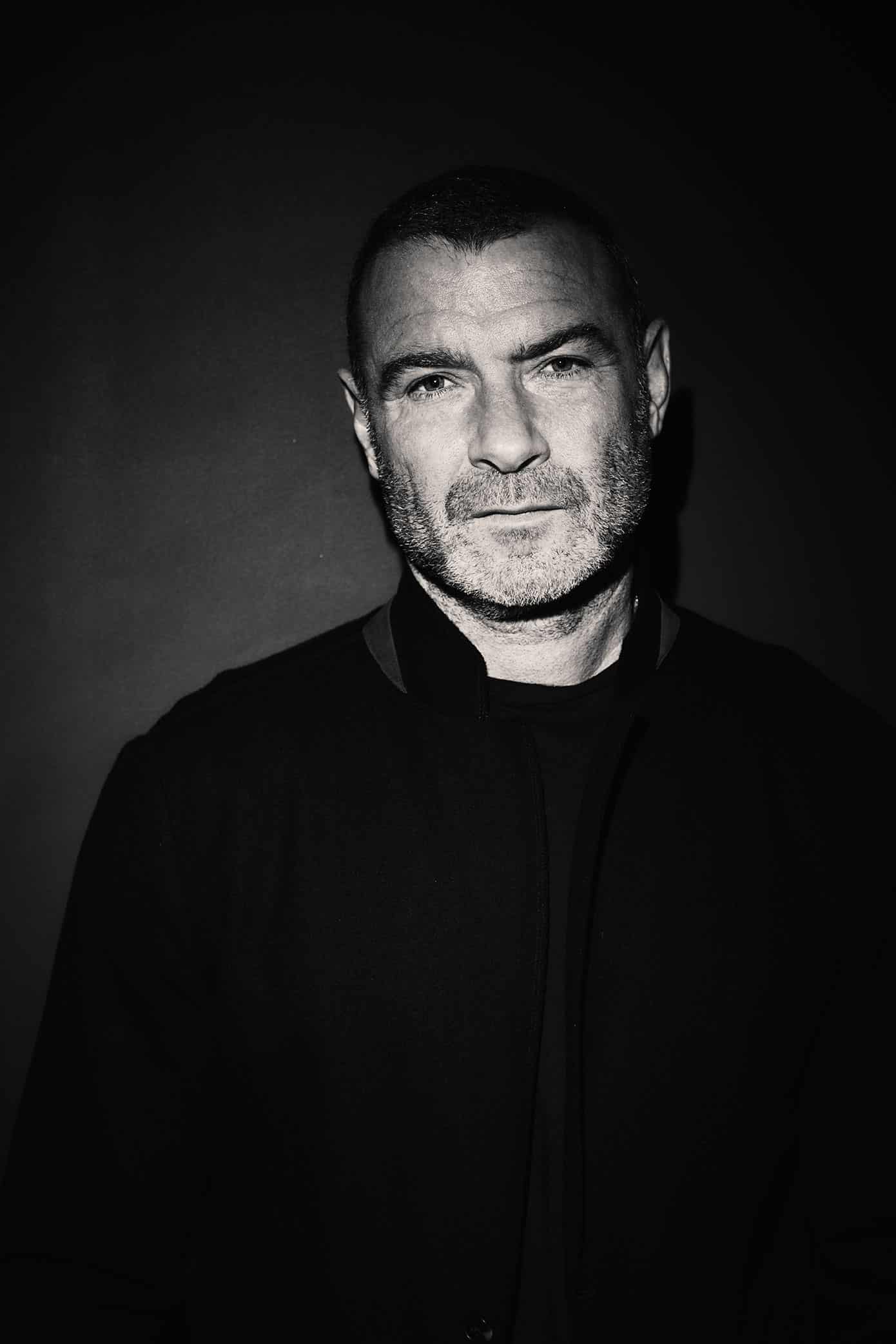
And sustain it for future generations. I’ve got three kids, two sons and a daughter. Mine are older, but when this sort of stuff happens, a lot of people choose to not allow their children to see it. But I think it’s a reality check of where we live. I remember going with my father and doing Meals on Wheels when I was a wee little lad. And it was so incredible to meet these survivors of the Second World War who were longing for company. I was entranced with their stories of the war. And some of them had very physical, quite shocking scars. But it was really important, I thought, to be taught about empathy, history, and the state of the world.
That generation is extraordinary to me. The sacrifices that generation made. Those guys that you’re talking about, we have them in America too. That generation of people who didn’t hesitate for a second about defending their ideals and values. And it was just one of those things that I thought about when I was watching the news. I’d see the war on CNN, and I thought, “Geez, my grandfather would’ve been up in arms about this. He would’ve been over there, fighting.” And I’m not anywhere near that. That generation in particular, those guys you’re talking about who survived a Blitzkrieg and all that stuff, they’re really extraordinary people.

They’re made of the right stuff, for sure. Give me a definition of courage. What does courage mean to you?
I think watching these guys get on a bus to go off and fight in a war in which they’re wildly outmanned and outgunned is extraordinary to me. I would like to imagine that I would make that choice for my children, but I thought about it and I wouldn’t. I don’t want to say goodbye to my kids. I couldn’t. I don’t think I could stand the idea of not seeing my kids again. I thought about that kind of courage and it occurred to me that it’s some awareness of what lasts, what matters most. And that’s real courage to me. It’s some awareness of values and what matters most, what matters to you, and being willing to fight for it, to die for it. And it’s just something that our generation has completely lost touch with, and I know I have. But that level of courage. Because when you’re a kid, you always think, “Jesus, if someone put me up against the wall and said, ‘It’s you or your mom,’ What would I do?” I’d always imagine scenarios like that because I had a very vivid imagination as a kid. And it’s happening. It’s happening to people.
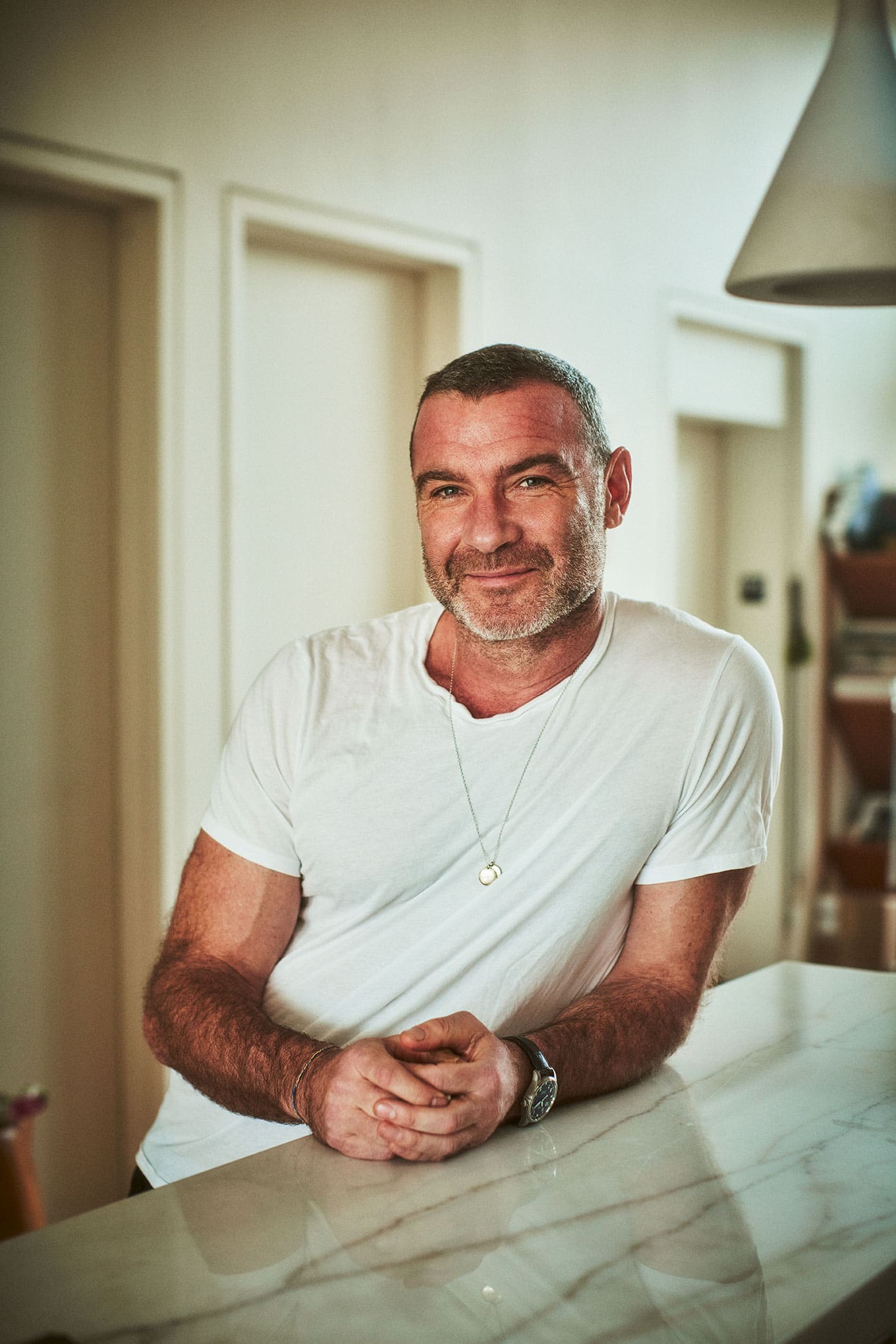
Well, I think you’re being slightly hard on yourself because it’s such a surreal thing to talk about. I think it’s something that you only would truly know, God forbid, if you were faced with it. And then you just react. But I very much value your consideration and you’ve clearly contemplated this with depth and effort.
I’ve thought about Zelensky. He made this decision which surprised a lot of people, which was that he was going to be the first leader in Ukraine’s history that wasn’t going to jump on a helicopter and escape in the night. Not only was he going to stay, but he was committed to staying in Kyiv. And Kyiv was supposed to topple in three days. It was very important to him, symbolic to him, that he’d be in Kyiv. A military leader could strategically move around, and that’s probably the smart thing to do to stay safe, but he was committed to holding Kyiv, holding his seat of power, and not moving.
I wonder about the courage that took, for an actor who played a president, then runs for office and becomes a president, and goes, “Holy shit, now this is real.” And it occurred to me, because people don’t often say very nice things about actors, that an actor is sort of uniquely suited for that moment because he understands that the second act absolutely has to be [William Shakespeare’s] Henry V. He has no choice. He knows how that play is going to go. He knows history. He knows dramatic literature. He knows that he has to be a stand-up guy in that moment. And it’s about committing to those values that he believes in as an artist, as a man, as a leader, he commits to the thing that he believes in, even if his life is at risk. And I think that’s real courage. Standing up for what you believe in. It’s easy to talk about, it’s more complicated to do. But I think what Zelensky has shown us is it’s actually easier to do than you might think.
And the fact that his wife remained, the first lady remained. Extraordinary. And the opposite; how do you define cowardice, being a coward?
Violence. It was one of my favorite things, and one of the most interesting things, about ‘Ray Donovan’ and playing that role. Because everybody sort of saw him as such a tough guy, but he was just constantly living in fear of being revealed. I think that’s the thing with violence. It’s always the more scared person that throws the first punch. I think that’s being afraid to sit in the moment and see what happens, being afraid to work it out, being afraid to love, being afraid to reach out, being afraid to look for a solution, being afraid to find common ground, being afraid to change. The result is usually violence. Personally, I think that’s what we’re seeing coming from Putin. He’s backed into a corner.
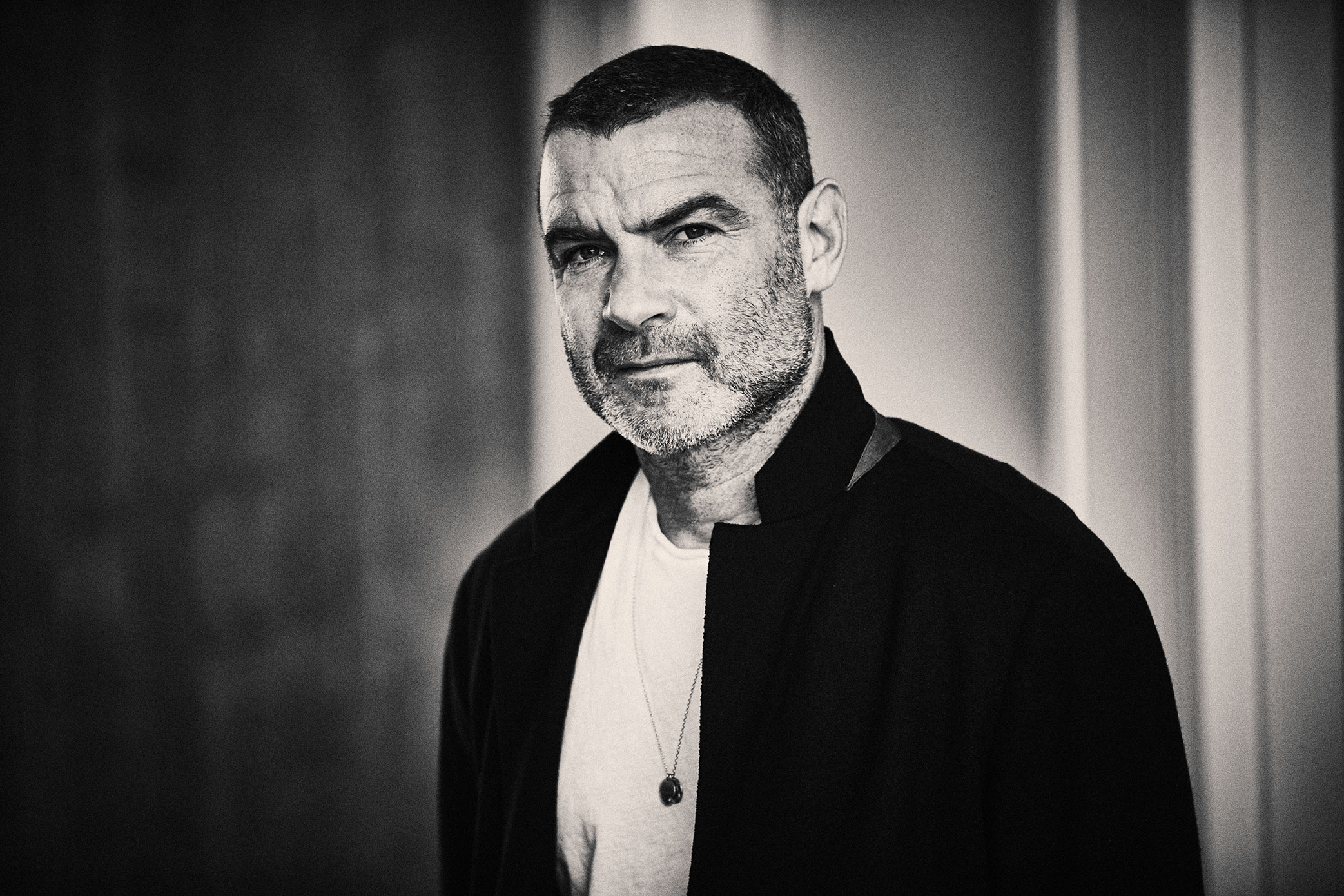
How do you adjust to normal life having been there? How do you go from this extraordinary exposure to dealing with Hollywood and all the stuff that we take for granted. Does it take you a few days or are you just constantly fueled by this?
Well, it’s kind of an acute problem. So it does keep you busy if you want it to. And then also there’s kids. I find that kids are the most constantly humbling experience you can have. So anytime I kind of lose touch with reality, my Machiavellian little kids are right there to remind me.
Is there anything that I haven’t asked you that you would like to speak about with regards to this work?
No, I appreciate your questions on courage and cowardice because I never thought of it that way, particularly in terms of having the courage to trust your instincts, having the courage to care, to know that it’s in our better nature. It’s in who we are as human beings to want to look out for each other. And I just trust that.
It’s something that I’ve always struggled with. I’ve always struggled with being a social person. I’ve always struggled with keeping in touch. I’ve always struggled with reaching out. And I think one of the best things this work has taught me is how valuable it is. And I don’t mean on the scale of raising money for Ukraine. I mean on the scale of reaching out to your friends and remembering that that’s our nature. That it is our nature to care about each other, it is our nature to be compassionate towards each other. That is real courage to be kind. And its opposite is violence.
Do you know if there are any projects going on in Hollywood which are covering this or being developed? Zelensky is extraordinary on so many levels. Would you like to play him?
I’m sure there is. I’m way too tall to play Zelensky. Maybe Ben Stiller could play him, and I could play [Head of the president’s office Andrii] Yermak. But it’s not something that I’ve thought about in any kind of creative way at all. That was the first thing that came at me, people saying, “Do you want to do this project on storytellers and people in Ukraine?” I was like, “F**k man. This is not an art thing.” But I now realize it is. I’d like to find an NGO of people in Ukraine who are making films that are speaking to the world and helping to spread the narrative of who they are and what they’re going through. But at the time when this all started, the last thing I want to do is relate to this in any kind of creative way. It just seemed too acute.
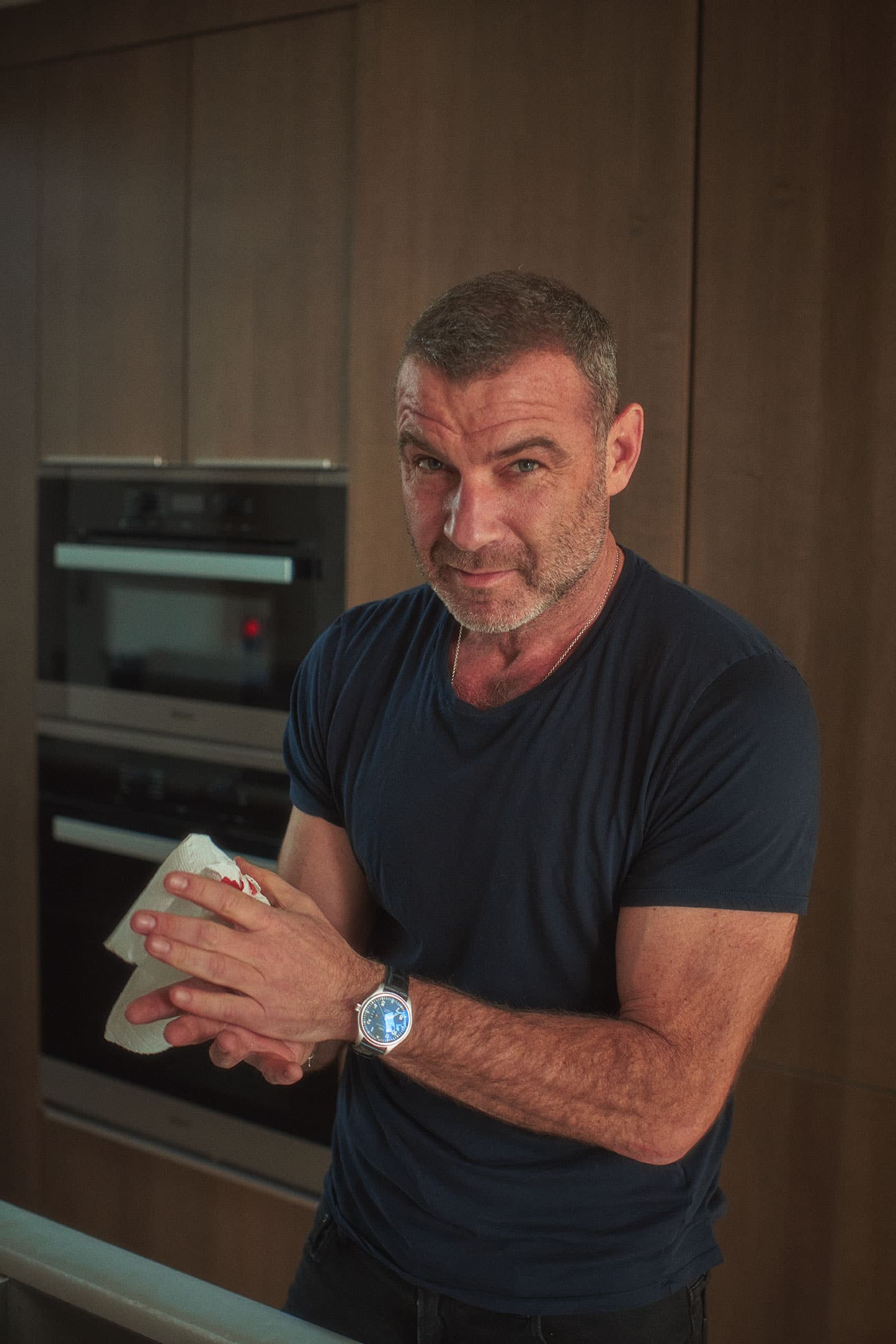
I’m deeply touched by the fact you have given us this time, and it says so much about you that you turned up at our photographer Guy’s place on your own, without any fuss.
His dog bit me! The f***ing dog bit me. I was trying to help his dog out of a bad spot, and she bit me.
I know. He sent me a picture. My first thought was, “Oh f***. We’ll get sued.”
That’s what I said, “It’s alright Guy, we can solve it all in court!”
Lastly, are you hopeful?
Oh yeah. Absolutely. I know they’re going to win. I know that. I feel like it’s a matter of time though. And that’s the problem, do we have the time? Do we have the patience? Can we withstand all this shit we’re going to go through? Because I do think truth has a way of leveling everything. The truth will out. People often ask me what I mean by that. You look at the bedrock of Russian nationalism, the mothers of these young cadets in the military schools. And these mothers, back in April, were saying to the heads of the school, “Please don’t send our sons to Ukraine.” And the administrators of those schools were saying, “No, no. Of course we wouldn’t send your kids to Ukraine.” But those kids all got sent in the first wave and now they’re all dead. And that’s folding in on itself. The civil society in Russia is starting to become aware. Even with the hermetically sealed Kremlin media, they’re starting to realize that they’re involved in something bigger, more ominous, and more sinister than they thought.
And I think that’s the thing about the truth. It just has a way of coming out. In this country, it’s unbelievable what people think they can say. Now the new trend is you can say whatever you want and it doesn’t matter. Get elected, it’s just a race to the goal. But I think what we saw a little bit in the last election, is that people were voting for candidates. And that the truth kinda finds its way into the conversation over time. And I think that’s what’s going on in Ukraine. There’s no denying the truth there. It’s too big a lie to suppress.
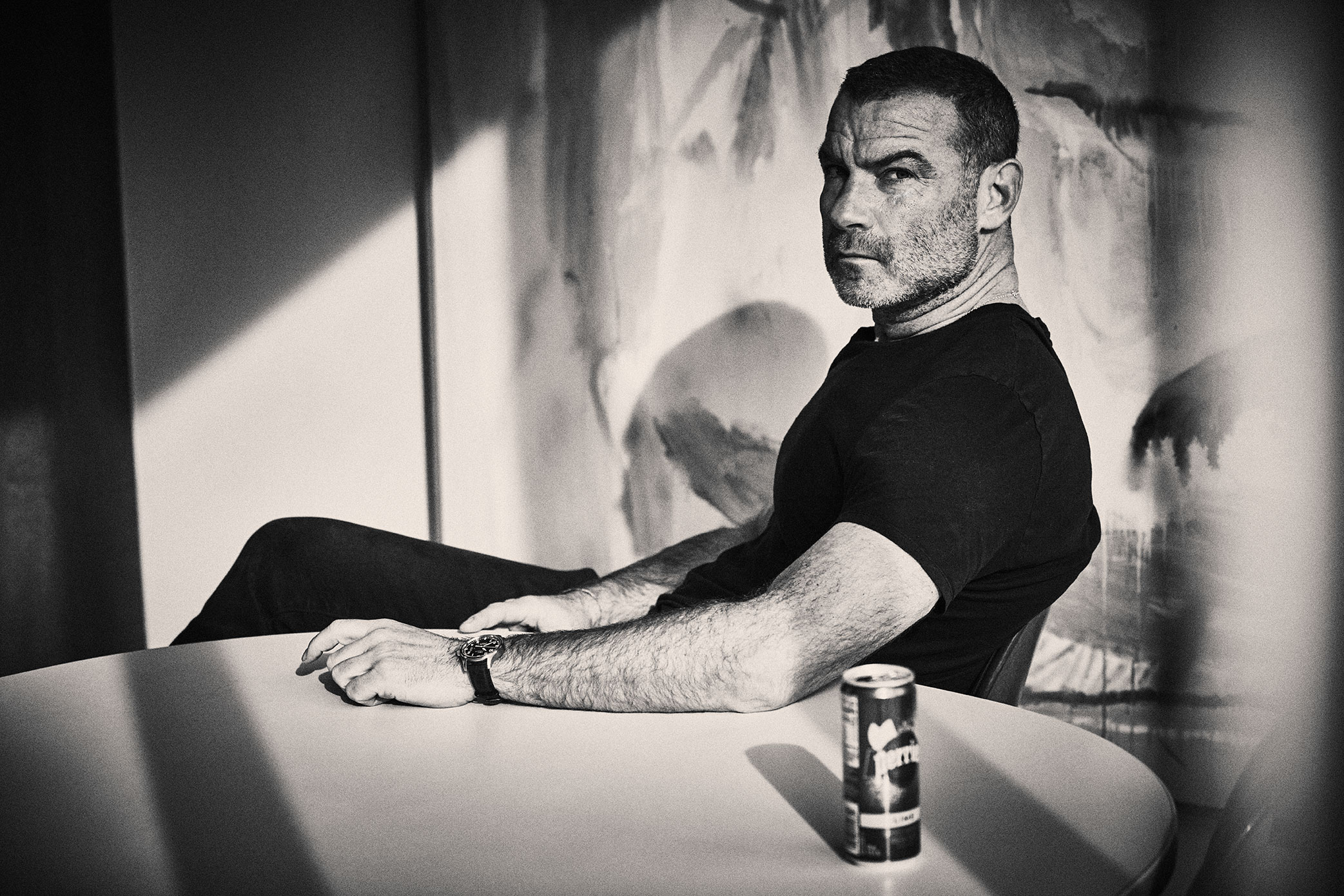
Learn more about BlueCheck Ukraine and United24


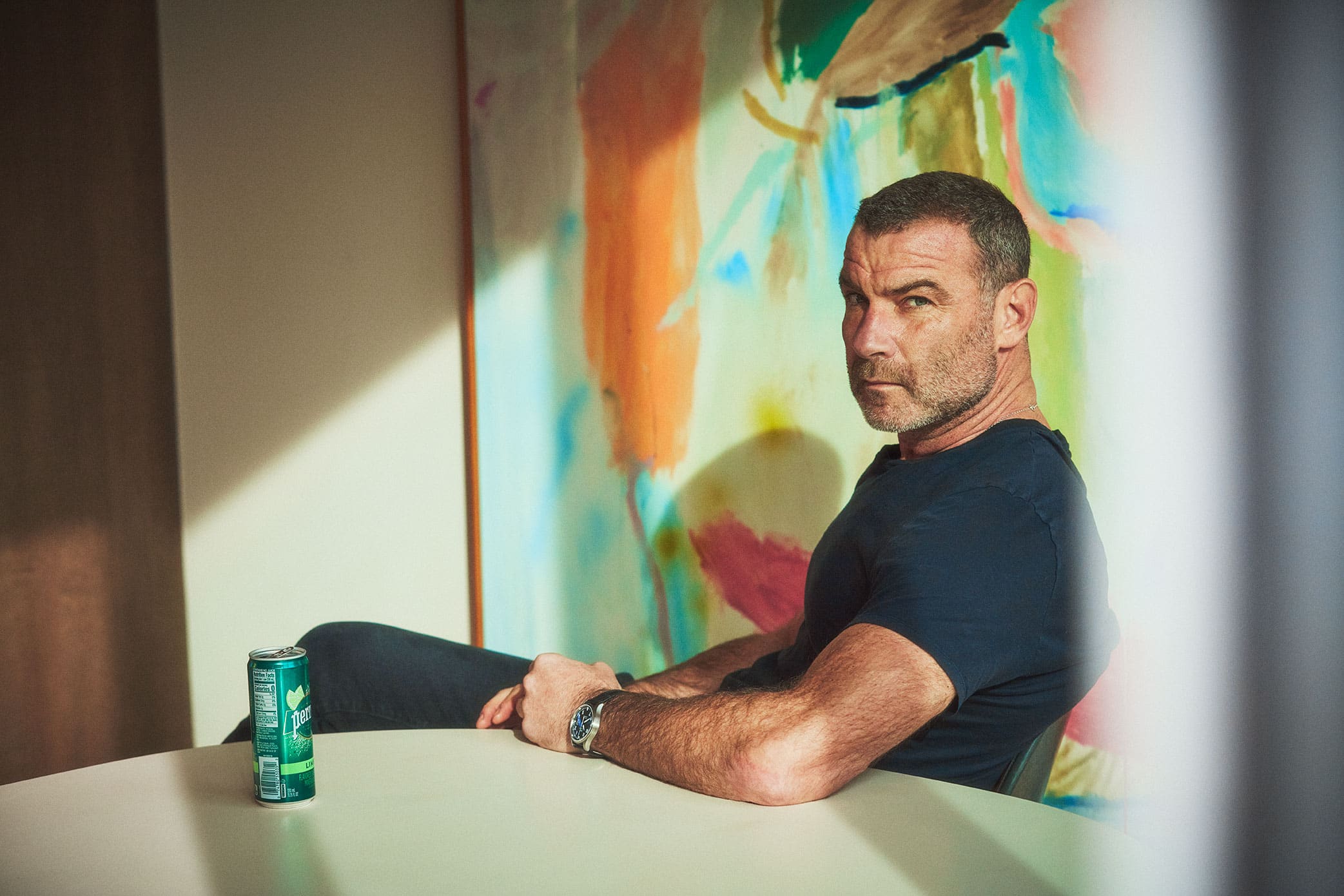






I absolutely found this enthralling, inspiring and so thought provoking- what a masterpiece !!
Wonderful to hear that this ‘film heroes’ really is courageous and brave and not scared of being vulnerable…
We can learn a lot, aspire to all being more open to stand up for what our values are.
Sometimes in this world it feels like we are all lost
Thank you for your remarkable interview and the way the words spilled out of the article so that we got a better glimpse of this great man/ dad and all the other hats he wears
Great job!!
Thank you Debs, that’s great to hear – happy to let you know that now you can view the interview to really understand and see for yourself our conversation, and witness Liev’s genuine passion.